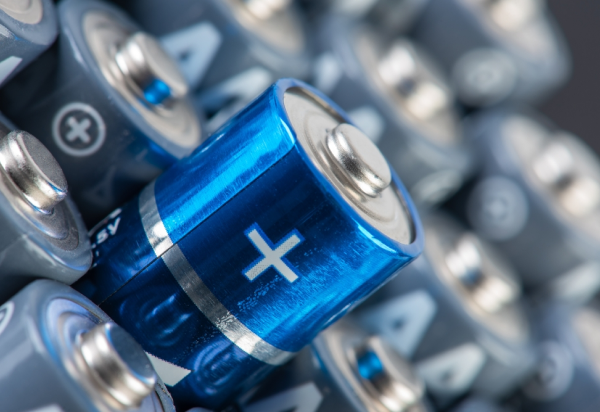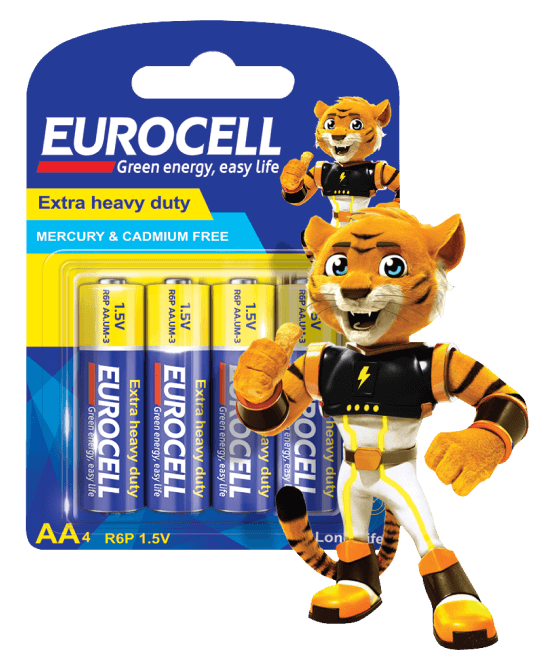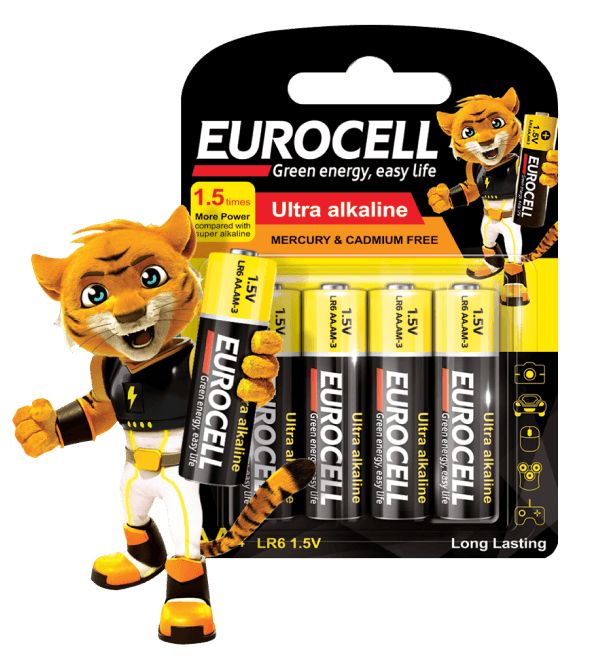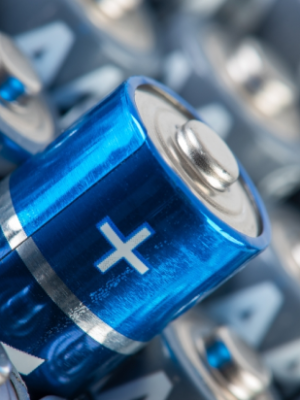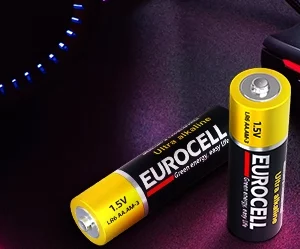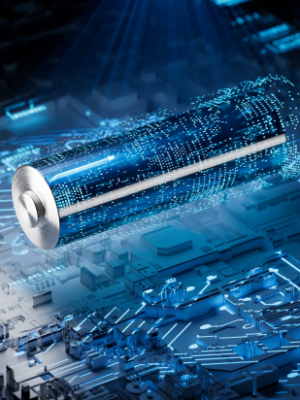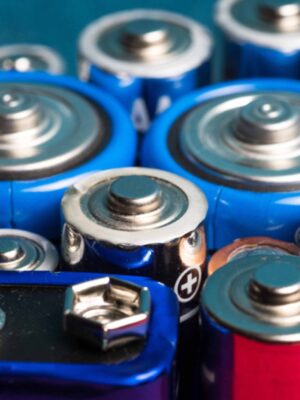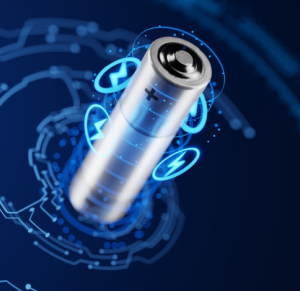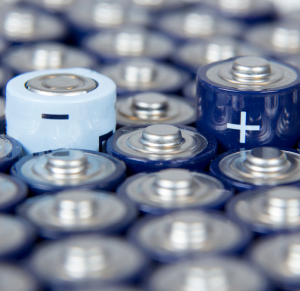Batteries play an essential role in supplying energy to electronic devices that we use in our daily lives. Two of the most common types of batteries are carbon-zinc and alkaline batteries. In this article, we Comparison of carbon zinc and alkaline batteries, which compares these two types of batteries focusing on performance, lifespan, cost and compatibility with different devices. We’ll also go over the pros and cons of each type to help you make an informed decision based on your specific needs.
History of Batteries
Carbon zinc batteries have been around since the early 20th century and were some of the earliest batteries developed for consumer use. Their simplicity and affordability made them a popular choice for low-power devices. Eurocell offers a range of carbon zinc batteries that continue to serve the market due to their cost-effectiveness.
Alkaline batteries, on the other hand, were introduced in the 1960s and gained rapid acceptance thanks to their longer lifespan and improved technology. Eurocell’s alkaline batteries are among the most reliable in the market, providing longer-lasting power for high-drain devices. Their superior performance makes them a trusted choice for consumers who prioritize durability.
Structure and Performance of Carbon Zinc Batteries
Carbon zinc batteries consist of a negative zinc electrode and a positive carbon electrode, with an electrolyte usually made of ammonium chloride or zinc chloride. This structure is relatively simple and allows the efficient conversion of chemical energy into electrical energy.
However, Comparison of carbon zinc and alkaline batteries, the performance of zinc carbon batteries is optimized for low-discharge devices, meaning they are suitable for things like clocks, remote controls, and LED lights. While they are economical, their energy output degrades faster under higher loads. Eurocell’s carbon zinc batteries are perfect for these low-power applications, offering reliability without breaking the bank.
Structure and Performance of Alkaline Batteries
Alkaline batteries use potassium hydroxide as their electrolyte and have a more advanced internal structure, usually consisting of manganese dioxide as the positive electrode and zinc as the negative electrode. This design enables them to deliver higher and more stable power over time, making them ideal for high-discharge devices such as cameras, toys and hand tools.
When Comparison of carbon zinc and alkaline batteries, we find that the ability of alkaline batteries to maintain a constant voltage for a long time is one of their key advantages over carbon zinc batteries. Eurocell alkaline batteries are designed to last longer, even in heavily used devices, ensuring that your electronics continue to function without frequent battery replacements.
Lifespan and Performance Comparison
When Comparison of carbon zinc and alkaline batteries in terms of lifespan, alkaline batteries clearly outperform zinc-carbon batteries. The long life of alkaline batteries makes them ideal for devices that require continuous or frequent use. Eurocell alkaline batteries are known for their long life and are a reliable choice for users looking for long-term performance.
In contrast, carbon zinc batteries are more suitable for devices with minimal energy consumption. Their shorter lifetime makes them a viable option for low-demand applications due to their cost-effectiveness. For example, Eurocell carbon zinc batteries work well in devices such as watches or TV remotes, where the power requirement is not constant or significant.
Cost and Economic Considerations
Cost is an essential factor when choosing between battery types. Carbon zinc batteries are more affordable upfront, making them an attractive option for budget-conscious consumers. Eurocell offers cost-effective carbon zinc batteries for users who prioritize low initial investment, especially for devices that don’t require high energy output.
However, if you are looking for a long-term solution, Eurocell’s alkaline batteries, though more expensive initially, offer better value over time. Their longer lifespan means fewer replacements, which can offset the higher purchase price. For devices that are used frequently, investing in alkaline batteries could prove to be more economical in the long run.
Common Applications of Carbon Zinc Batteries
Carbon zinc batteries are typically used in devices with low power demands. These include:
– Clocks
– Remote controls
– LED flashlights
– Small radios
These devices do not require constant energy output, making carbon zinc batteries a more cost-efficient option. Eurocell’s carbon zinc batteries are designed for such applications, providing enough power for devices that are not used continuously.
Common Applications of Alkaline Batteries
Alkaline batteries are preferred for devices that require more energy and are used more frequently, such as:
– Digital cameras
– Toys
– Portable audio devices
– High-powered LED torches
The higher power output and longer-lasting performance of Eurocell’s alkaline batteries make them suitable for these applications. For devices that are constantly in use, alkaline batteries provide the reliability and energy consistency needed.
Environmental Impact of Carbon Zinc Batteries
When evaluating the environmental impact of these batteries, it’s important to note that carbon zinc batteries are less recyclable than their alkaline counterparts. Due to the materials used in their construction, carbon-zinc batteries often have a greater environmental footprint. That said, Eurocell has made strides to incorporate more sustainable practices into the production of its carbon zinc batteries, reducing the overall environmental impact.
Environmental Impact of Alkaline Batteries
Alkaline batteries are generally considered to be more environmentally friendly due to their longer lifespan and recyclability. Many recycling programs accept alkaline batteries, making them a greener option. Eurocell’s commitment to sustainability ensures that their alkaline batteries are manufactured in a way that minimizes environmental harm. Moreover, the longer life of these batteries means fewer batteries need to be disposed of, further reducing waste.
Pros and Cons of Carbon Zinc Batteries
Pros:
– Low cost
– Widely available
– Suitable for low-power devices
Cons:
– Shorter lifespan
– Not suitable for high-drain devices
– Higher environmental impact compared to alkaline batteries
Eurocell’s carbon zinc batteries strike a balance between affordability and performance, making them a good choice for users who need an inexpensive solution for low-energy devices.
Pros and Cons of Alkaline Batteries
Pros:
– Longer lifespan
– High power output
– Better for high-drain devices
– More environmentally friendly
Cons:
– Higher initial cost
– Heavier compared to carbon zinc batteries
Eurocell’s alkaline batteries are well-regarded for their durability and consistent power, making them worth the extra cost for users who prioritize longevity and performance.
Choosing the Right Battery
Choosing between carbon zinc and alkaline batteries depends largely on the specific needs of your device. If your primary concern is cost and you are using low-power devices, carbon zinc batteries from Eurocell are a good choice. However, if you need long-lasting power and are using high-drain devices, investing in alkaline batteries is the smarter option. Eurocell’s range of both battery types ensures you can find the right product for your needs.
Future Trends in Battery Technology
As technology continues to evolve, both carbon zinc and alkaline batteries are being refined to offer better performance, greater sustainability, and reduced costs. Companies like Eurocell are at the forefront of this innovation, constantly improving the materials and processes used in battery manufacturing.
Conclusion: The Right Battery for the Right Device
In conclusion, the choice between carbon zinc and alkaline batteries comes down to the specific requirements of your devices. Eurocell’s carbon zinc batteries provide an economical solution for low-power applications, while their alkaline batteries offer superior performance for high-drain devices. By understanding the pros and cons of each type, you can make an informed decision that balances cost, performance, and environmental impact.
——————————-
FAQs Comparison of Carbon Zinc and Alkaline Batteries
1. Which battery lasts longer: carbon zinc or alkaline?
Alkaline batteries typically last much longer than carbon zinc batteries, especially in high-drain devices.
2. Are alkaline batteries better for the environment?
Yes, alkaline batteries are more recyclable and have a lower environmental impact due to their longer lifespan.
3. Can I use carbon zinc batteries in high-drain devices?
No, carbon zinc batteries are not suitable for high-drain devices as they deplete quickly under heavy loads.
4. Why are carbon zinc batteries cheaper?
Carbon zinc batteries use simpler materials and technology, making them less expensive to manufacture.
5. Are Eurocell batteries environmentally friendly?
Yes, Eurocell uses sustainable manufacturing processes and offers recyclable alkaline batteries to minimize environmental impact.
